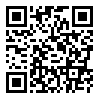Volume 1, Issue 1 (3-2013)
mededj 2013, 1(1): 13-17 |
Back to browse issues page
Download citation:
BibTeX | RIS | EndNote | Medlars | ProCite | Reference Manager | RefWorks
Send citation to:



BibTeX | RIS | EndNote | Medlars | ProCite | Reference Manager | RefWorks
Send citation to:
Hajihosseini F, Izadi A, Mahboobi M, Mohammadtabar R. Effect of Peer Education on Practical Skills Learning of Nursing Students in Clinical Skill Lab (CSL) of Mazandaran University of Medical Sciences. mededj 2013; 1 (1) :13-17
URL: http://mededj.ir/article-1-22-en.html
URL: http://mededj.ir/article-1-22-en.html
Shahid Beheshti University of Medical Sciences
Abstract: (17611 Views)
BACKGROUND AND OBJECTIVE: Peer education is a useful method for clinical skill learning. Students play as instructor and learner roles simultaneously and help each other in learning process. This is an effective method in providing students for their future roles. This study was performed to evaluate the effect of peer education on practical skills learning of nursing students in clinical skill lab (CSL).
METHODS: In this quasi-experimental study 73 nursing students were randomly allocated to intervention (37 students) and control (36 students) groups, for different entrance years. Students who educated in 5 and 6 semester (mentors) were performed peer education. All of two groups were educated by one academic member. Intervention group and control group were practiced by mentors and academic member, respectively. Evaluation was done by one academic member who had no information about students groups through the same checklist. This checklist had 20 scores. Validity and reliability were obtained by content validity and observer agreement (r=0.79) methods, respectively.
FINDINGS: The mean age of 73 female students was 18.28 years. Mean age in control group was 18.2 years and in intervention group was 18.27. There was no significant difference in the mean age between the two groups. The mean scores were 15.78±2.91 in the intervention group and 15.37±3.48 in the control group. There was no significant difference in the mean scores between the two groups (p=0.59).
CONCLUSION: There was no significant difference in the mean scores between the two groups, this indicates that peer education is effective like instructor education.Therefore, it is suggested to use of junior students as mentors in clinical skill labs in nursing education.
Type of Study: Research |
Subject:
Special
Received: 2012/10/10 | Accepted: 2013/02/13 | Published: 2013/03/17
Received: 2012/10/10 | Accepted: 2013/02/13 | Published: 2013/03/17
Send email to the article author
| Rights and permissions | |
 |
This work is licensed under a Creative Commons Attribution-NonCommercial 4.0 International License. |

This work is licensed under a Creative Commons Attribution-NonCommercial (CC BY-NC)



